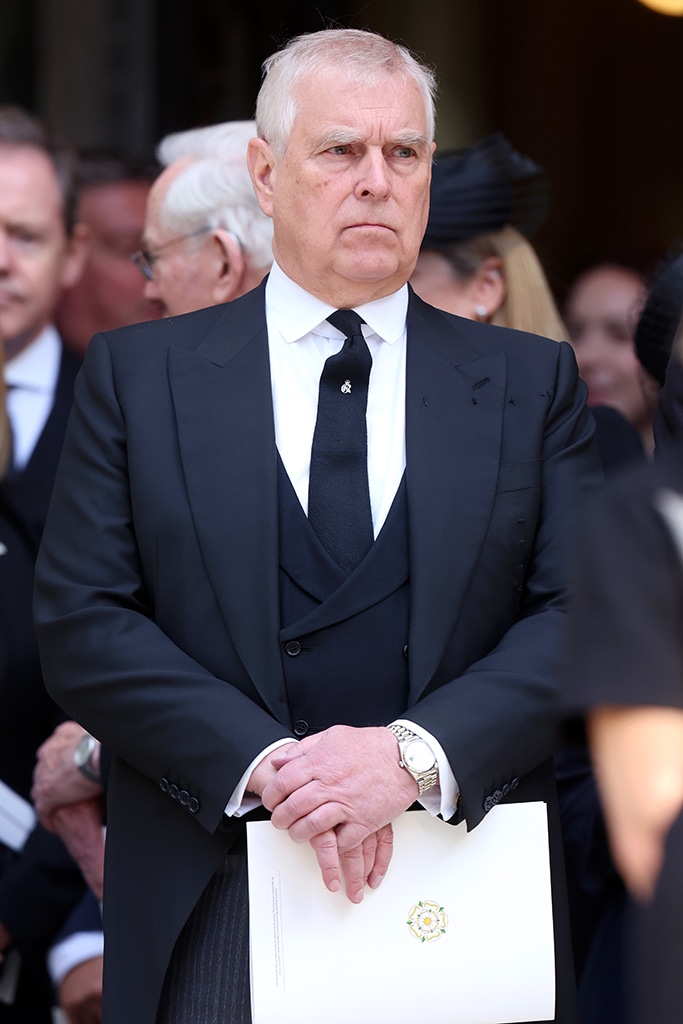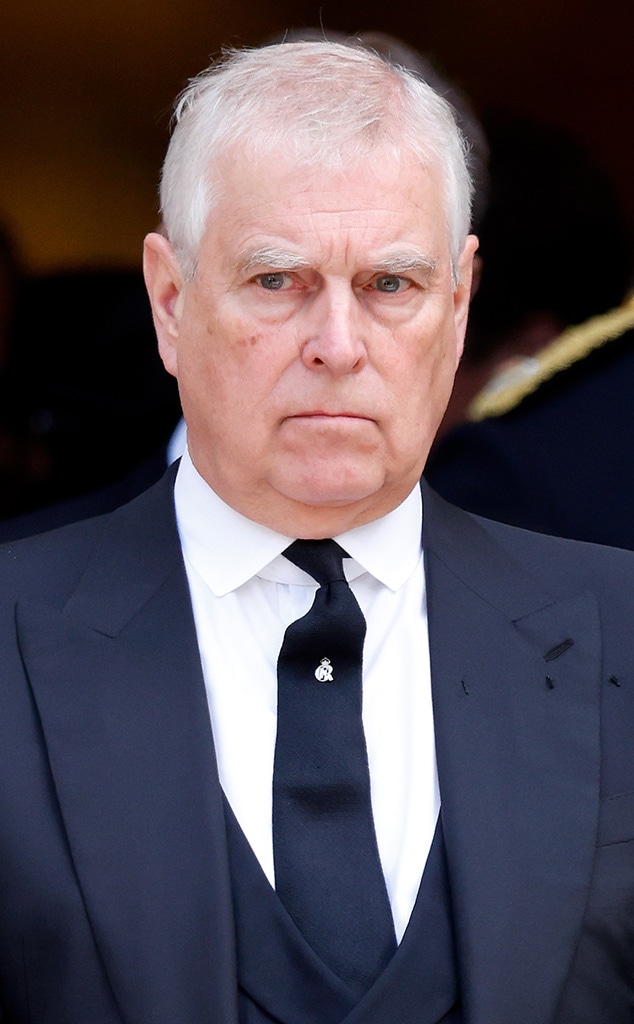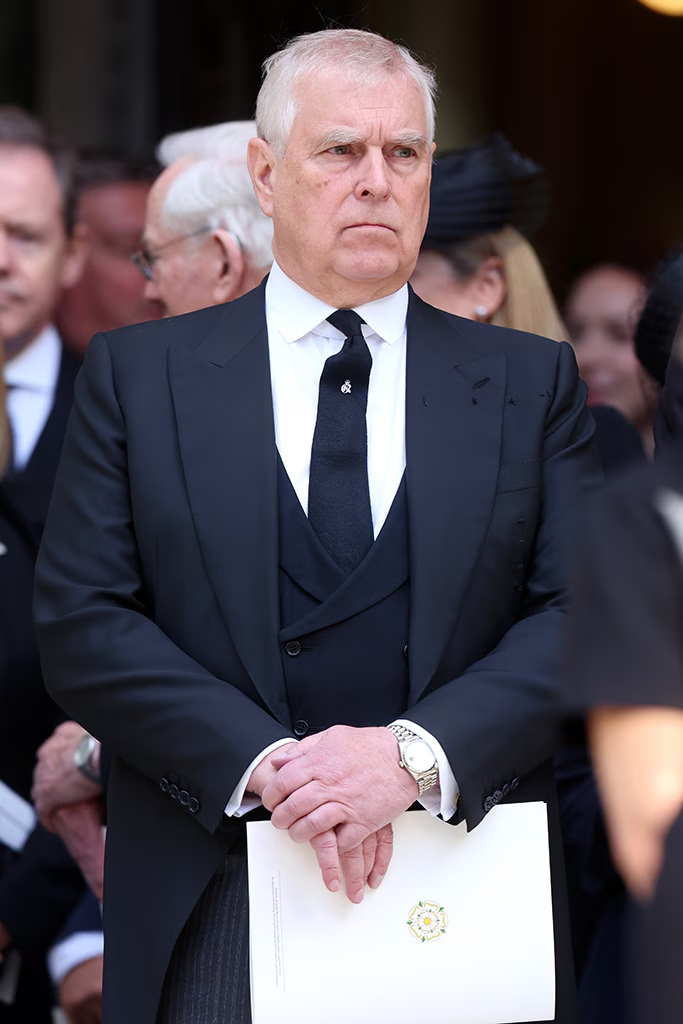Prince Andrew Royal Titles Scandal: His Stunning Decision Explained
The Prince Andrew royal titles controversy has once again thrown the British monarchy into the spotlight. In a shocking turn of events, Prince Andrew announced he will no longer use his royal titles, including the historic Duke of York, following ongoing scrutiny over his connection to the late convicted sex offender, Jeffrey Epstein.
In an official statement released by Buckingham Palace on October 17, the 65-year-old royal said the decision came after deep discussions with King Charles III and other members of the royal family. “After discussions with The King, and my immediate and wider family,” Andrew said, “we have concluded that the continued accusations about me distract from the work of His Majesty and the Royal Family.”
He added, “I have chosen to put my duty to my family and country first. With His Majesty’s agreement, I feel I must now go a step further.”
While he will retain the title of “Prince” as the son of the late Queen Elizabeth II, this announcement officially ends his use of the Duke of York title — a name he’s held since 1986.

A Royal’s Step Away: Duty Over Privilege
The Prince Andrew royal titles decision represents a rare and humbling move within the royal institution. Andrew explained that this step was about “placing family and national duty above personal privilege.”
This is not the first time Andrew has stepped away from public life. Back in 2019, following his disastrous BBC Newsnight interview where he attempted to address allegations of sexual misconduct, he announced he would “stand back from public duties.”
At the time, Andrew stated, “It has become clear that my association with Jeffrey Epstein has become a major disruption to my family’s work and the valuable organizations I support.”
Five years later, he has gone further — cutting ties with his royal honors completely.
Prince Andrew Royal Titles: What Sparked the Fallout
The controversy surrounding Prince Andrew royal titles stems largely from allegations made by Virginia Giuffre, who accused him of sexually abusing her when she was 17 after being trafficked by Epstein.
Although Prince Andrew has repeatedly and vigorously denied all accusations — famously stating in his 2019 interview, “I have no recollection of ever meeting this lady” — the scandal deeply tarnished his reputation.
Giuffre filed a federal lawsuit against Andrew in 2021, which was settled out of court the following year. While the settlement did not include an admission of guilt, it was widely perceived as a move to protect the royal family from further embarrassment.
Epstein, meanwhile, died by suicide in 2019 while awaiting trial on sex trafficking charges in New York.
(External source: Prince Andrew Gives Up Royal Titles Amid Jeffrey Epstein Allegations)

The Second Time Titles Have Been Removed
Interestingly, this isn’t the first instance of Prince Andrew’s royal titles being stripped. In January 2022, just months before Queen Elizabeth II’s death — Buckingham Palace announced that the late monarch had removed his military affiliations and royal patronages.
“With The Queen’s approval and agreement, the Duke of York’s military affiliations and royal patronages have been returned to the Queen,” the Palace said in a statement.
That decision followed increasing public pressure and outrage surrounding the sexual abuse allegations. At the time, it was emphasized that Andrew would “continue not to undertake any public duties and defend this case as a private citizen.”
(Internal link: Read more royal updates on Wil-News here: wil-news.com/royal-family-updates)
Prince Andrew Royal Titles: The Emotional Impact
For Prince Andrew, losing the Duke of York title marks the end of a royal chapter spanning 38 years. The title was conferred upon him in 1986, the year he married Sarah Ferguson, Duchess of York.
Although the couple divorced in 1996, they have maintained an unusually close friendship — even continuing to live together at Royal Lodge in Windsor. Ferguson has remained publicly supportive of Andrew, though she has avoided commenting directly on his latest move.
Insiders suggest the decision to renounce his royal titles was not made lightly but was seen as “necessary to protect the integrity of the monarchy” under King Charles III’s reign.
A Tarnished Reputation and Denials
Despite stepping back, Andrew continues to maintain his innocence. In his October 17 statement, he reaffirmed, “As I have said previously, I vigorously deny the accusations against me.”
This echoes his earlier comments to BBC Newsnight, where he insisted that he had “no memory whatsoever” of meeting Giuffre — despite a now-famous photograph showing the two together.
The Prince Andrew royal titles scandal has fueled global debates about accountability within the monarchy and whether public trust in the royal institution can be restored.
What This Means for the Royal Family
The removal of Prince Andrew’s royal titles is a significant moment for the House of Windsor. King Charles III has made it clear that he wants a “slimmed-down monarchy” — one focused on duty, transparency, and modern relevance.
By distancing the monarchy from controversy, Charles hopes to preserve its global standing amid growing calls for reform, particularly from Commonwealth nations.
According to royal expert Katie Nicholl, this move “allows the King to solidify his vision for a modern monarchy while quietly drawing a line under one of its most damaging scandals.”
Public Reaction: Divided Opinions
Public opinion in the UK remains sharply divided. Some believe Prince Andrew’s decision to surrender his titles is a long-overdue act of accountability. Others view it as a symbolic gesture that changes little in practice.
Social media commentary has been swift. One user wrote, “He may have given up the title, but the stain remains.” Others, however, praised him for “finally putting family before self.”
Regardless, the Prince Andrew royal titles decision has reignited questions about how much influence the monarchy should have in a modern democracy.
Looking Forward: What’s Next for Prince Andrew
Now effectively retired from public life, Prince Andrew is expected to focus on private charity work and family matters. He will reportedly continue to live quietly in Windsor and has no plans to return to royal duties.
Royal watchers suggest that this step marks the final phase in his gradual withdrawal from public view — a move intended to protect both himself and the institution his family represents.
Though the Prince Andrew royal titles decision closes a painful chapter, its long-term effects on royal reputation and public trust will continue to unfold.

